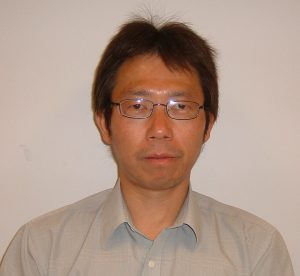![]()
[hr]The National Science Foundation has awarded Jackson State University a $150,000 research grant to implement machine learning/artificial intelligence for potentially improving cancer treatment and survival.

The project is being led by Dr. Jian-Ge Zhou, an assistant professor in JSU’s Department of Chemistry, Physics and Atmospheric Sciences. His study of light emissions could yield revolutionary discoveries of bioluminescence imaging technology (BIT) and photodynamic therapy (PDT). Each could greatly enhance the accuracy of tumor diagnosis (via BIT) and the survival rate in cancer treatment (via PDT).
“I am very pleased that my proposal has been awarded. This grant will stimulate my research. The recognition of my work and capacities is very encouraging,” Zhou said. Furthermore, he said the research using artificial intelligence would broaden career options for underrepresented minority students at the undergraduate level.
Zhou’s study is called “Chemiluminescence, Quantum Yield and High-Dimensional Data Analysis in Trajectory Surface Hopping Simulation.” Quantum yield is the efficiency of converting absorbed light into emitted light, which can be in the form of fluorescence. The use of high-tech machines can help explore the origin of chemiluminescence yield, particularly light resulting from a chemical reaction, such as that of a firefly.
Ideally, a proposed simulation would help process vast amount of data and extract “useful and meaningful information on quantum yield,” Zhou said. He added that rather than having to use an entire nuclear phase space, the machine-learning model would be capable of analyzing a “small number of collective modes deemed dynamically relevant.”
As a result, the model can be applied to bioluminescence, including the study of enzyme molecules. The process would expand the application of chemiluminescence/bioluminescence in biomedical science involving BIT and PDT.
Overall, Zhou said his research may result in life-changing discoveries. He praised supporters at JSU and, especially, his colleagues in the College of Science, Engineering and Technology.
“I appreciate very much the constant and strong support I have gotten over the years from the JSU community, for people commenting on my research or inviting me to contribute to a joint research project. I am grateful for this award and will work with my colleagues to enhance the JSU research profile,” Zhou said.






